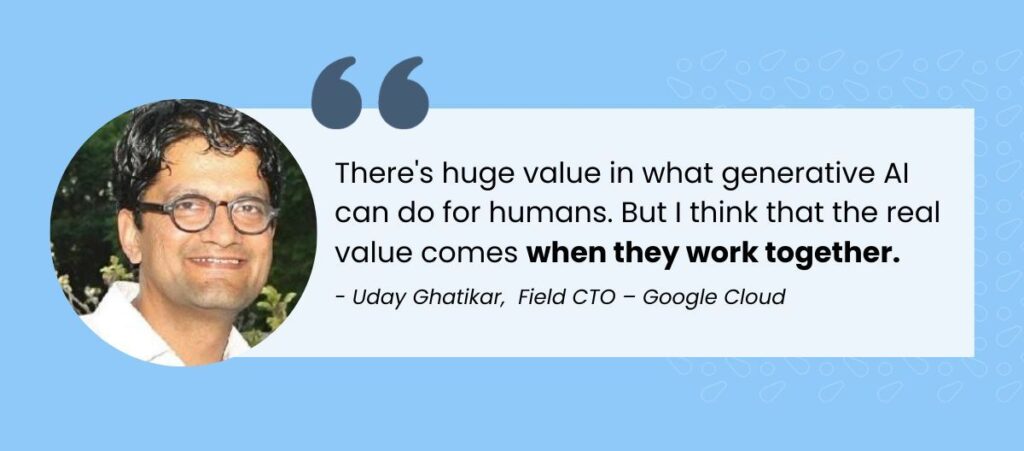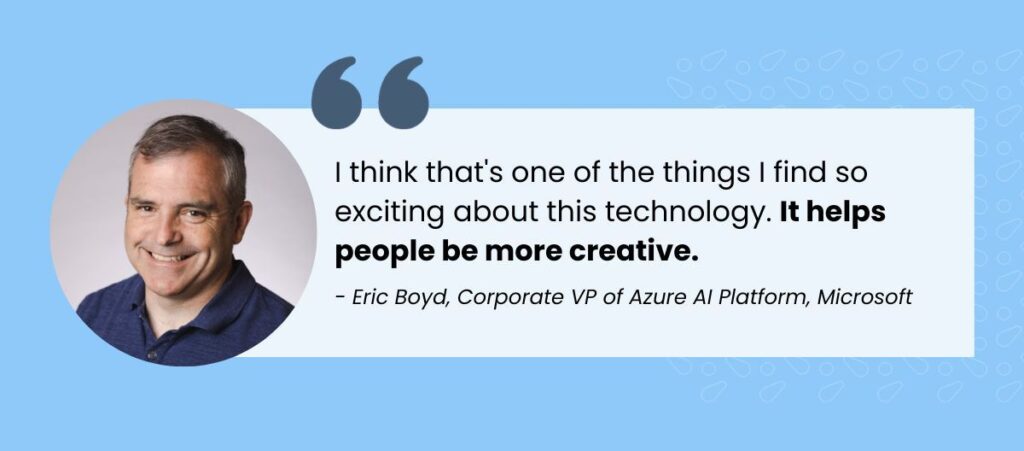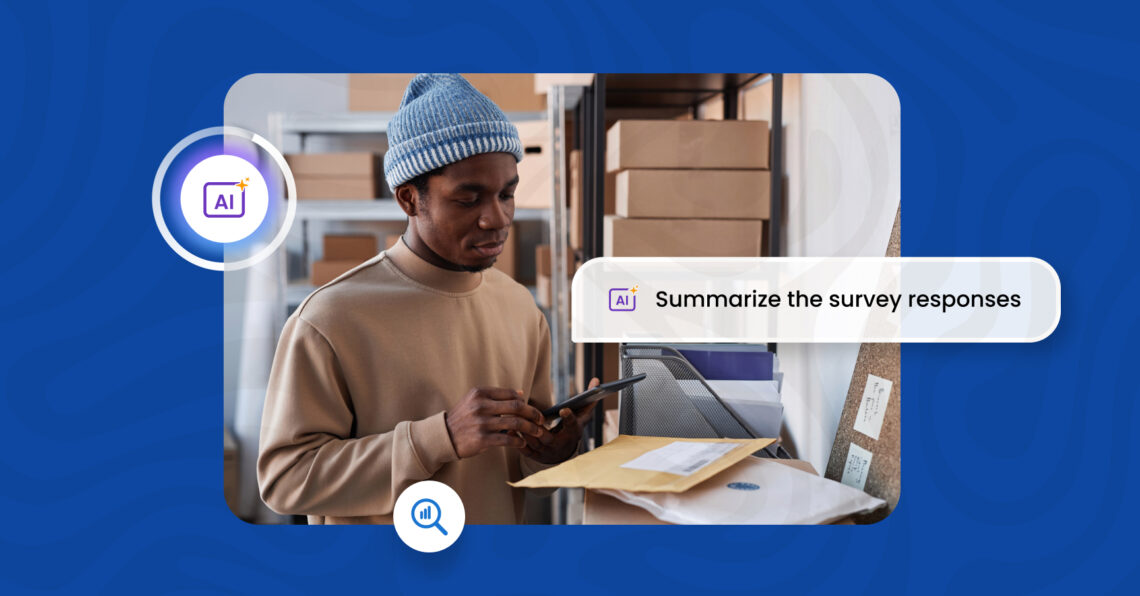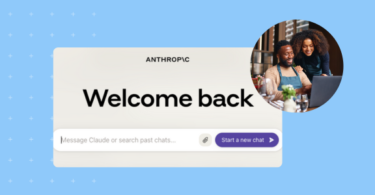In a rapidly evolving digital landscape, local businesses face a pressing question: How can they stay relevant and meet escalating customer expectations? The answer, as revealed at the recent Birdeye View digital conference, lies in the revolutionary potential of Artificial Intelligence (AI).
As consumer behavior and expectations evolve, AI emerges not just as a tool but as an indispensable ally for businesses aiming to thrive. Let’s explore expert insights on how harnessing AI can transform customer engagement, operational efficiency, and more.
Get ready for the return of the greatest gathering of reputation and social media experts at Birdeye View Conference 2024! With powerful sessions from top business experts and industry leaders in AI, social media, reputation, and customer experience management, this conference is a must-attend for any business leader. Register today to reserve your spot. Don’t miss your opportunity to outshine, outperform, and outrank your competition!
In this article, we’ll dive into key insights from Microsoft, Google, and other experts who are at the forefront of AI and digital customer experience.
Customer expectations and the evolving digital landscape
First, let’s set the stage. In the wake of technological advancements and changing dynamics, businesses must pivot to meet growing customer expectations in the digital realm. Naveen Gupta, CEO and Co-founder of Birdeye, shed light on this shift:
“Post-COVID, consumer behavior has been altered permanently. Consumers now expect the convenience of digital interactions from all businesses. They look for a business online and expect accurate information. They even expect to text a business just like they will do with family or friends and expect an immediate response.”
Naveen further highlighted the importance of businesses adapting to this change by pointing out the repercussions of not meeting these expectations:
“In fact, Birdeye ran an extensive survey and we found that 30% of the consumers would not select a local business that doesn’t respond to a message within an hour.”

He then went on to explain:
“FAANG companies — Facebook, Amazon, Apple, Netflix, Google — were born digital. The Main Street businesses like many of you — the healthcare provider, the pizza shop, the real estate agent — were not started with a digital-first mindset.“
So, how can local businesses stay competitive in an increasingly digital word? Love it or hate it, AI is here to stay, and adopting it into your processes will give you the competitive edge you need to stay relevant and retain customers.
Below, we’ll explore some key predictions on how AI will impact businesses and enhance customer experiences.
Birdeye – all-in-one platform
Automate Reviews, Ratings, Listings & Reputation Management with Birdeye.
1. AI will become a collaborative partner, not a replacement
A common conception is that AI will make many human jobs redundant. However, many experts agree that AI will become more focused on augmenting human skills rather than wholesale replacement.
As Eric Boyd, Corporate VP of Azure AI Platform at Microsoft, explained:
“Those are all parts of building the application and building the model effectively, and at Microsoft, we provide tools for that, but obviously we’re not building every application. And so, that’s where we really work with companies like Birdeye that can come in and build the applications for their customers and bring the customer data, ground the models in them, and get them focused on doing exactly the things the customers need.”
Rather than developing AI solutions in a silo, Boyd emphasizes the importance of collaborating with partners and bringing real customer data to the table. This allows the AI to be tailored to clients’ specific needs rather than a generic, one-size-fits-all approach.
Uday Ghatikar, Field CTO of Google Cloud also highlighted the unique value humans bring in guiding AI applications:
“There’s huge value in what generative AI can do for humans. But I think that the real value comes when they work together, right? Because that’s where the rubber hits the road where there’s the creative elements that AI does, but then there’s additional validation and additional creativity that humans bring.”

Bill Riley, VP of Marketing at Medical Advantage Group, summed it up nicely, saying:
“The future of customer service is AI-driven. It’s not about replacing the human touch, but about complementing it.”
Ghatikar pointed out that AI contributes technical excellence while human oversight adds the equally crucial elements of creativity and emotional intelligence.
The consensus is that AI and humans collaborating together in thoughtful ways will produce the greatest business impact. Rather than an either/or scenario of human vs. AI, the future points to a scenario where both bring complementary strengths.
2. AI will radically improve productivity by automating tasks
One of the biggest potential advantages of AI is freeing humans from repetitive, low-value work. By automating tedious tasks, AI enables employees to focus on more rewarding strategic initiatives.
As Kiran Bellare, Head of Product – Generative AI, explained:
“So [in terms of] customer engagement, I think you can get more done with less using AI. The other area where you can get a lot of mileage out of it is in terms of being able to automate a lot of transaction operations.”
Customer engagement via high-touch, personalized interactions is crucial for modern businesses. But manually engaging with each customer at scale becomes unmanageable. AI automates time-intensive operations like addressing common customer service FAQs, allowing human representatives to handle complex issues requiring discretion and emotional intelligence.
Melissa Cameron, Senior VP of Customer Acquisitions at National Storage Affiliates, also commented on how AI enhances operations:
“Automation and intelligence are obviously at the core of developing simplified and enhanced self-serve digital experiences.”
Self-service options powered by AI, such as chatbots on websites and messaging apps, can provide quick assistance without customers having to wait for live representatives. Again, this empowers human agents to focus on tasks AI can’t easily replicate.
The net result of AI-driven automation is higher productivity, efficiency and capacity to take on more rewarding, strategic work.
3. AI can help unleash new creative potential
While AI excels at automating repetitive tasks, it also holds untapped potential for enhancing human creativity. For marketers or other roles where constant content creation is a challenge, AI can provide a much-needed spark.
As Eric Boyd of Microsoft explained:
“I think that one of the things I find so exciting about this technology is [that] it helps people be more creative, I’m not the most creative person myself, so it’s really helpful for me. Image generation technology helps me come up with new ideas and create different copy.”

Even tech leaders sometimes feel uninspired and drained of creative juice. Boyd revealed that AI-powered tools providing fresh ideas, images, and copy have helped him overcome creative obstacles.
Kiran Bellare of Google also commented on AI’s capacity to enhance ideation and content production:
“Marketers spend a lot of time creating content, whether it’s graphic, textual, or video content, for branding purposes, for a web presence, or for offline presence. A lot of that is getting automated through AI which would really dramatically boost productivity for marketers.”
Marketers constantly under pressure to produce novel, engaging content can leverage AI to expand their creative horizons. AI can help ideate topics, generate outlines, rewrite drafts in new styles, and produce supporting visual assets.
While AI might not fully replace human creativity, it can certainly amplify it during periods where creative wells run dry.
4. AI will enable personalized, instant customer experiences
In today’s on-demand environment, customers expect ultra-fast, tailored interactions from brands. But delivering consistent, quality experiences at scale is extremely difficult without the right tools.
According to Kiran Bellare of Google:
“How do you drive conversations with your customers? Being able to automate a lot of the conversations like answering simple FAQs on your website, making sure that your responses are on point, relevant, on time, et cetera without minimizing the human overhead behind.”
AI chatbots can address common customer queries in real-time, freeing up staff. Natural language processing also allows bots to understand conversations and respond appropriately.
Melissa Wright, CMO of American Pacific Mortgage, shared a similar sentiment:
“[Customers] today are looking for personalized experiences. With AI, we can provide tailored [customer] recommendations that cater to individual preferences, enhancing the user experience on our platform.”
Customer experience guru, Jay Baer, also explained:
“There are more and more places where customers can reach out to a business, and any place that you exist is potentially a complaint mechanism, right? The suggestion box is wherever you have a channel. So Instagram, YouTube, Threads, Snapchat, it doesn’t matter. Wherever you have a presence where your logo exists, somebody can reasonably expect to be able to reach out to you.”
Between social media, messaging apps, online reviews and other digital channels, brands can’t afford to ignore any customer touchpoints. An omnichannel AI approach allows consistent experiences across the channels consumers prefer.
5. AI can provide customer insights and help you improve your reputation
In an age where a single customer review can influence the decisions of countless prospective clients, understanding and prioritizing reputation management has never been more crucial. AI offers an efficient way to monitor and respond to feedback and bolster reputation. Beyond merely gauging sentiment, AI provides granular insights into customer preferences, concerns, and desires.
Elijah Lee, Digital Marketing Manager of Harbinger Marketing, emphasized the importance of understanding customer sentiment:
“By leveraging AI, we’ve gained unprecedented insights into renter feedback and reviews. It’s about more than just gauging satisfaction; it’s about understanding their needs and adjusting our offerings accordingly.”
Steven Greer, COO of Genesis Counseling Center, echoed this sentiment:
“We use AI to analyze customer feedback at scale, ensuring that we not only meet but exceed customer expectations every time.”
In essence, AI serves as the bridge between businesses and their customers. By tapping into AI-driven insights, businesses can not only react to feedback but also anticipate future needs, setting the stage for sustained success and customer loyalty.
Charting new business horizons with AI
In summary, AI holds incredible potential for:
- Automating tedious tasks to allow more strategic work
- Boosting creative output and ideas
- Providing fast, tailored customer experiences across digital channels
Rather than a threat to human jobs and skills, AI is shaping up to be an amplifier. With humans overseeing and guiding applications, AI can enhance creative thinking, productivity, customer experiences and more.
The future looks bright for brands who embrace AI’s collaborative power.
Ready to promote your business locally and see how AI can change the way you do business? The Birdeye platform is now infused with BirdAI, a generative AI solution built to empower businesses like yours. Get started with BirdAI today.

Originally published









